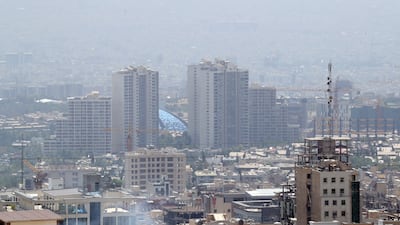Iranian intelligence authorities have neutralised 30 bombs meant to go off simultaneously in Tehran, Islamic Revolutionary Guard Corps-affiliated media reported on Sunday.
The bombs, found in “densely populated” areas of the capital, were planted to coincide with the first-year anniversary of nationwide protests sparked by the death of Mahsa Amini, the report said.
The explosions “were precisely planned for the anniversary of last year's riots” and “aimed at breaking the security authority and presenting an unstable image of the country, creating despair and fear in the society and inciting riots and protests,” the Intelligence Ministry said.
Experts say Tehran was deeply shaken by the months-long protests which began last September, referred to as “riots” by authorities.
More than 500 people were killed as security forces implemented repressive measures against protesters, and several were convicted and executed for crimes during the protests.
The Intelligence Ministry also said it has arrested 28 ISIS-linked terrorists in recent days.
The detainees have a history of affiliation with groups in “Syria, Afghanistan, Pakistan and the Kurdistan region of Iraq,” the ministry said.
ISIS has claimed several attacks in Iran, including deadly twin bombings in 2017 that targeted Iran's parliament and the tomb of the Islamic Republic's founder, Ayatollah Ruhollah Khomeini.
It also claimed responsibility for an attack on a Shia shrine last October, when 15 people were killed in the south-western city of Shiraz.
In July, Tehran hanged two men sentenced to death for the attack.
Three other men received jail sentences from five to 25 years in the trial.
Tehran has recently pushed neighbouring Iraq to dismantle what it calls exiled “terrorist groups” based in the northern Kurdistan region.
In August, Baghdad said it had begun implementing a deal to disarm Iranian Kurdish groups operating in the north of the country.
Earlier this month, it said it had moved such groups away from its border with Iran and relocated them to camps “deep within Iraqi Kurdistan.”
The groups involved include the Free Life Party of Kurdistan, known by its Kurdish acronym PJAK, and the Democratic Party of Iranian Kurdistan.
Iran has accused exiled Iranian groups of “fomenting unrest” at home, and accused them of involvement in last year's protests.


